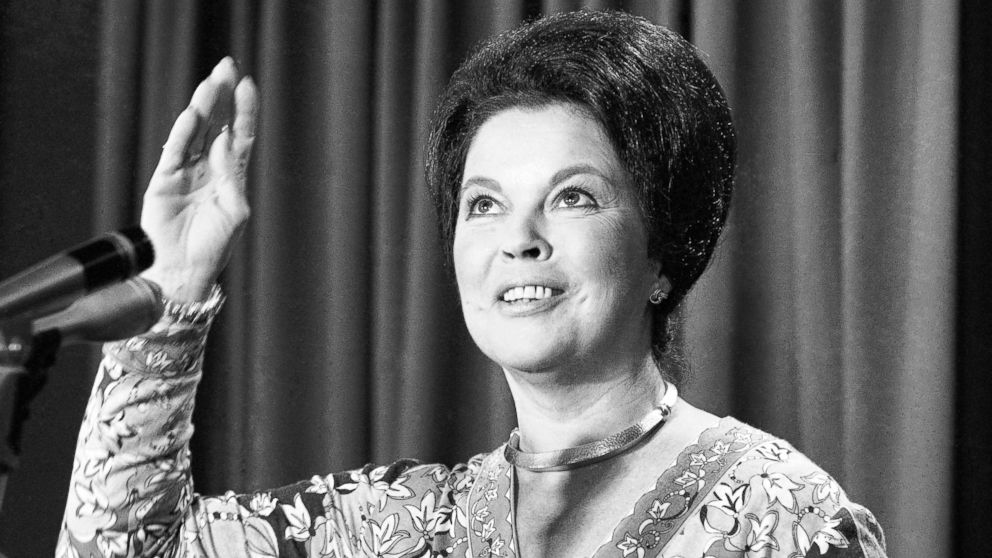Paying for Ambassadorships Through History
The new ambassador to Hungary joins presidential benefactors before her.

— -- intro: Sen. John McCain took to the Senate floor this week to warn of the national security implications of appointing a political donor to be next U.S. ambassador to Hungary, as his colleagues voted to confirm soap opera producer and Obama campaign “bundler” Colleen Bell to the position.
“I am not against political appointees,” McCain, R-Ariz., said Tuesday. “I understand how the game is played, but here we are, a nation [Hungary] that is on the verge of ceding its sovereignty to a neo-fascist dictator getting in bed with Vladimir Putin and we're going to send the producer of 'The Bold and The Beautiful' as the ambassador.”
But reserving plum ambassadorships for presidential benefactors is nothing new, and is sometimes even seen as a plus because some political appointees have had more direct lines to Washington than their career Foreign Service counterparts. And, in some cases, their skills produce more intangible benefits, like their ability to throw lavish parties or charm foreign politicians.
Here’s a look at some non-career diplomats through history who, nonetheless, got top ambassadorial spots: quicklist: 1title: Joseph P. Kennedy (United Kingdom, 1938 – 1940) text: The father of JFK and RFK backed Franklin D. Roosevelt before he even got the Democratic presidential nomination in 1932, and his support paid off in 1938 when he got the job of Ambassador to the Court of St. James, the first Irish-Catholic American to hold the post. media: 27367125quicklist: 2title: Clare Booth Luce (Italy, 1953 – 1956) text:One half of a power couple with husband Henry Luce, who created the Time-Life magazine empire, Clare was a literary and political force in her own right, penning the play “The Women,” reporting on World War II and winning two terms in Congress before being appointed ambassador to Italy by President Dwight Eisenhower. Her greatest diplomatic achievement was helping settle the Trieste crisis, a border dispute between Italy and Yugoslavia. media: 27367209quicklist:3title: Walter H. Annenberg (United Kingdom, 1969 – 1974) text: The philanthropist, publisher and broadcaster, who founded Seventeen magazine and TV Guide, was appointed Ambassador to the Court of St. James by Richard Nixon. His wife, Leonore, oversaw the renovation of the ambassador’s residence, Winfield House, which the Annenbergs funded themselves. media: 27367375quicklist:4title: Shirley Temple Black (Ghana, 1974- 1976; Czechoslovakia, 1989 – 1992)text: Yes, that Shirley Temple. The child star went on to serve in several Republican administrations, including as one of Richard Nixon’s delegates to the United Nations General Assembly and as the U.S. chief of protocol. She got to Czechoslovakia just a few months before its communist regime fell and she once said in an interview that she spent most of her time trying to keep people like future president Vaclav Havel, with whom she became close, out of jail. media: 27366999quicklist:5title: Pamela Harriman (France, 1993 – 1997) text: The well-connected Harriman was a prolific fundraiser for the Democratic Party, buoyed by the family fortune of her third husband, prominent Democrat and onetime New York Governor Averell Harriman, and was appointed in 1993 by President Bill Clinton, whom she helped elect, to be the ambassador to France, a position she held when she died in 1997. A fluent French speaker and avid entertainer, Harriman’s death was mourned by then-Secretary of State Madeline Albright, who said, “America has lost a remarkable representative, the State Department has lost one of its most effective diplomats, and I have lost a friend.” media:27367326




